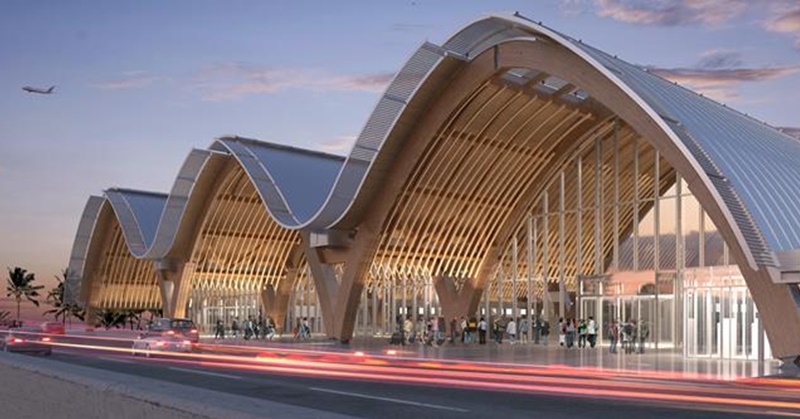According to officials at the Mactan-Cebu International Airport (MCIA), a total of 80% of their concessionaires and retail partners are already using biodegradable alternatives to their containers in restaurants and shops inside the airport.
The said progress was attributed by officials to their Going Green Campaign launched in two passenger terminals since the start of this year.

MCIA Targets to Become PH’s First Plastic-Free Airport
According to airport officials, under this policy, MCIA’s private operator GMR Megawide Cebu Airport Corporation (GMCAC) encourages the use of eco-friendly and reusable substitutes for their concessionaires after it banned the use of non-biodegradable single-use plastics and polystyrene containers, as shared in a report by the Philippine Daily Inquirer.
The GMGAC shared that since the launch of their campaign, concessionaires have shifted to using biodegradable alternatives such as plant starch utensils, paper cups and straws, wood stirrers, paper bags, and carton boxes for takeaway food.
For his part, GMCAC chief executive advisor Andrew Acquaah-Harrison shared, “We took this step forward starting with our commercial partners as our commitment to environmental sustainability.”
Harrison added that in 2018, the MCIA has produced a monthly average of 3,500-kilograms (kgs) of plastic waste from its restaurants and shops, but this is now down by close to 30% or a decrease of around 12,000-kgs per year.
Furthermore, the GMCAC also holds regular information and education campaigns for all airport concessionaires and stakeholders to raise awareness on the impacts of plastic use on the environment.
In line with this, the GMCAC also highlighted its other initiatives as part of its commitment to environmental sustainability.
Of note, GMCAC has been using 6,300 solar panels on the roof of Terminal 1 to supply electricity for the airport since 2017. This has made MCIA the first solar-powered airport in the Philippines.
Officials noted that on a monthly average, the solar panel system produces 196,800 Kwh and provides for 30% of the electricity requirements of the domestic terminal.
This is great news not only for the aviation industry but also for the Philippines. By starting to care for causes that help protect the environment, businesses will shift towards more sustainable practices that will reap benefits not only for the company but also for every living creature on the planet.
By starting little, we are acknowledging that there is still much work to be done not only by the MCIA, but every business or corporation thriving in the country. Each of us has a social responsibility, and the more we put value in our business, the greater our support should be for social causes.
ALSO READ: Here’s What the PH’s First Eco-Airport Looks Like